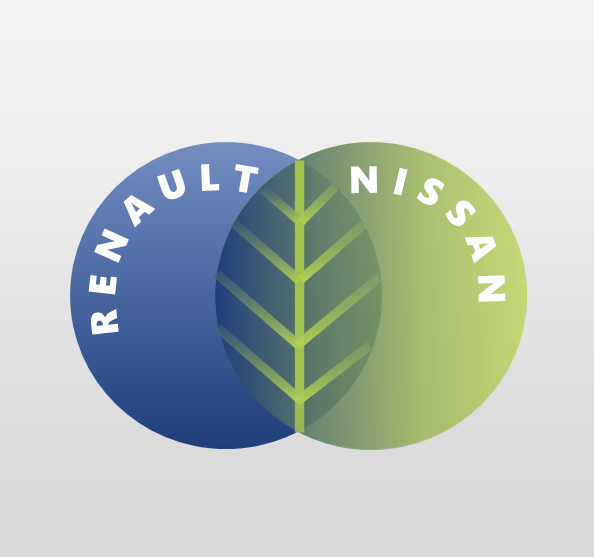With the new Renault-Nissan cooperation agreement, and as in the nursery rhyme “One step forward…”, I am not sure that the players really know whether they have moved forward or backward, beyond the façade of speeches.
The agreement that prevailed before, the RAMA (“Restated Alliance Master Agreement”), with its Byzantine contours, was only held together by the incarnation of power by a strong man, Carlos Ghosn. Today, “there is room for normality”, as Jean-Dominique Senard puts it.
The agreement now leaves a Domestic World, “the boss said”, for a Civic World, “the norm”. The Domestic World, which allowed the known abuses to develop, had the merit of informality: “Carlos said…” was enough to unblock budgets, the use of patents… without falling into a legal-technocratic formalism. Tomorrow, the explanation of “who does what, with what means, with what contract, etc.” will perhaps be healthier, but above all more time-consuming.
So what should we think of the prospects for cooperation around this new agreement?
The first stone of cooperation is a strong, unifying ambition that goes beyond the short-term interests of the parties involved.
The agreement speaks of “operational projects with high value creation”. The list is long, but it is only binding on those who really want to carry them out. The new agreement advocates a free union between the two manufacturers with no common unifying goal other than well-understood interests on a piecemeal basis.
In this context, where common sense is limited, everything will depend on how the Managers will operate, i.e. in which World the Managers will think and act.
And here, we must take into account the past, which has left its mark: “It’s like asking 10,000 divorced couples to get back together,” as one decision-maker put it in a recent article in Les Echos.
Moreover, if this agreement is lived in the Civic World with an army of lawyers and accountants, it is highly unlikely to produce the expected results.
To avoid this situation, the temptation would be to live cooperation in a Merchant World, purely transactional, on a case-by-case basis, where the strongest at a given moment wins, at the risk of encouraging systematic opposition. For example, in the past, the major markets were shared according to a “Leader Follower” rule and the imprimatur of Carlos Ghosn. Tomorrow, the operation announces “healthy competition” between the two teams. Under the pressure of the results imposed on each party, the competition risks quickly leaving the field of the gentleman’s agreement to become insidious or even frontal.
The balance between these two civil and commercial worlds, which readily criticise each other, is not going to be easy to build and maintain.
It will require very precise governance, a ‘hand of madness’ in the words of one decision-maker. But above all, it will require a Common World, even a diffuse one, to allow for “give and take” approaches, outside of an accounting and legal system. This is, for example, the subject of making available the patents of each of the groups. While Renault seems ready to play the game of pooling, it seems that Nissan is much more reticent.
Indeed, cooperation requires an objective awareness of the other’s needs. “I cannot achieve my objective alone (quality, cost, deadline, etc.) and therefore I need the other, even if I do not like him”. Just as the Russians and Americans have done, and still do, for the success of the International Space Station, the ISS.
If Lucas de Meo seems aware of this need, while wanting to remain as free as possible, Nissan’s boss, Uchida, does not give himself up and will have to deal with strong isolationist visions.
The question raised here is that of the intensity of the cooperation, which of course depends on the stakeholders. To evaluate this intensity we propose our scale of cooperation agreements, from 1 to 5.
- No cooperation. The parties, not yet “stakeholders”, have not really identified the need for cooperation. Going it alone is the first option.
- Conflict. Not in the sense of an open fight, but in the friction necessary to align points of view and contributions. Stakeholders are aware that working with others is necessary. But the gains, costs and methods of cooperation are still being explored.
- The (small) arrangement between friends. Cooperation is based on the good understanding, the common World between two key decision makers (Carlos G with Carlos G, it was indeed easier 😊). This is François Mitterrand with Helmut Kohl. But it is limited precisely to this “family” relationship and disappears when one of the actors leaves the playing field.
- The establishment of a common intersection between the two worlds. Each remains different but the area of cooperation does exist, structured by more or less strict interaction and decision-making processes. This is, for example, the customer-supplier relationship built up over time by purchasing processes and by mutual knowledge of capacities and criteria.
- Belonging to the same World. One step further, the different stakeholders belong to the same common world. This ‘macro’ World can encompass the two Worlds involved. This can go as far as merging into a single common World. The La Poste group is an interesting example in this respect because it brings together very different businesses such as La Banque Postale and Géopost in the same cooperative world.
This scale of increasingly cooperative agreements is the one that Renault and Nissan will have to “climb”. Today, I see them more at stage 1 (everyone is paying lip service), or even 2 (the subject is being seriously investigated on useful playing fields). The hope is undoubtedly to reach level 3 thanks to the creation of trust between people who are committed on both sides to achieve the first concrete cooperations. Beyond that, the slope risks being very steep and the centrifugal temptations too strong?
What are the lessons for all of us who are trying to cooperate as effectively as possible? I will mention three of them.
- Explain very clearly the common Ambition and why each party needs the other
- Explore without concession the current position on the scale of the Agreements, without taboos, without political discourse
- On this basis build a factual path to move up together
Laurent Dugas
Want to know more ? Contact us !

